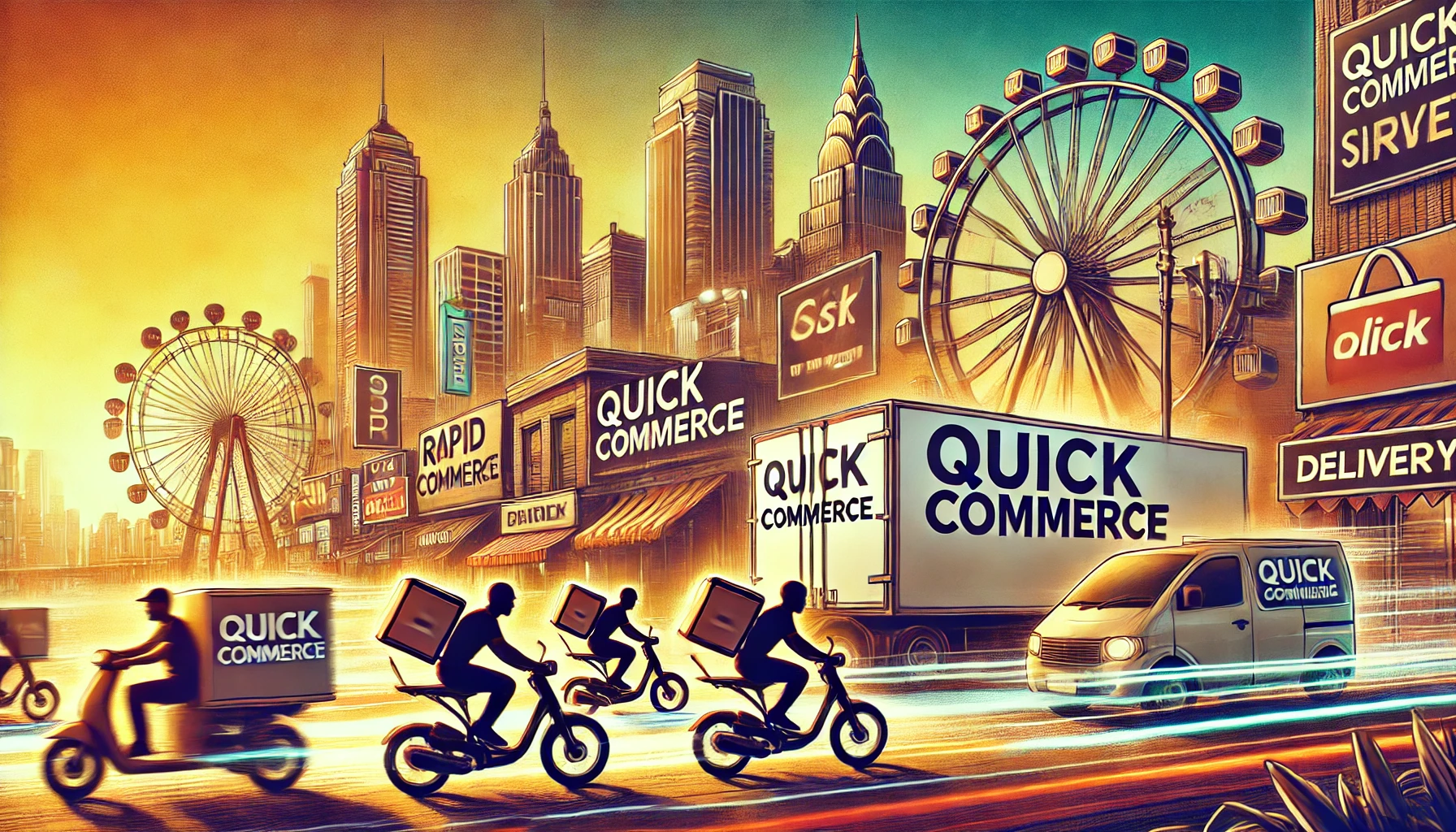The quick commerce (q-commerce) landscape in India is undergoing a significant transformation as major e-commerce players like Amazon and Flipkart enter the market, challenging established platforms such as Swiggy, Zomato, Zepto, Blinkit, and BigBasket. This article examines the evolving dynamics of India’s q-commerce sector, the strategic moves of these industry giants, and the potential implications for existing players and consumers.
The Rise of Quick Commerce in India
Quick commerce, or q-commerce, refers to the rapid delivery of goods—typically within 10 to 30 minutes—catering to consumers’ growing demand for speed and convenience. This model has gained substantial traction in India, especially during the COVID-19 pandemic, which accelerated the adoption of online shopping and home deliveries. Companies like Swiggy, Zomato, Zepto, Blinkit, and BigBasket have capitalized on this trend, offering swift delivery services for groceries, essentials, and more.
Market Share and Growth
As of 2024, India’s q-commerce market is valued at approximately $6 billion, with projections to reach $40 billion by 2030. Blinkit, owned by Zomato, leads the sector with a 40-45% market share, followed by Swiggy’s Instamart at 20-25%, Zepto at 15-20%, and BigBasket at 10-15%.
These companies have rapidly expanded their operations, leveraging dark stores and efficient logistics to meet the burgeoning consumer demand for quick deliveries.
Flipkart’s Foray into Quick Commerce
In response to the growing prominence of q-commerce, Flipkart launched its quick delivery service, Flipkart Minutes, earlier this year. The service has scaled operations across major cities, aiming to compete directly with established q-commerce platforms by offering rapid delivery of groceries and daily essentials.
Amazon’s Strategic Entry with ‘Tez’
Amazon India is set to enter the q-commerce market with its service codenamed ‘Tez,’ expected to launch by late December 2024 or early 2025. This move signifies Amazon’s commitment to capturing a significant share of the rapidly growing q-commerce market in India, directly competing with players like Blinkit, Zepto, and Swiggy Instamart.
Challenges Faced by New Entrants: The Case of Uber Eats
The Indian market has previously witnessed the exit of global players unable to compete effectively with local incumbents. Uber Eats, for instance, struggled against Swiggy and Zomato due to factors such as heavy discounting strategies leading to operational losses, lack of a distinct brand identity, and being a late entrant in a highly competitive market. These challenges culminated in Uber Eats selling its Indian operations to Zomato in 2020.
Implications for Existing Players
The entry of Amazon and Flipkart into the q-commerce space intensifies competition, potentially leading to price wars, reduced delivery times, and expanded product offerings. Established players like Swiggy, Zomato, Zepto, Blinkit, and BigBasket may need to innovate continuously and enhance operational efficiencies to maintain their market positions. Additionally, traditional retailers and small businesses could face increased pressure as q-commerce platforms attract a larger share of consumers seeking convenience and speed.
Consumer Impact
For consumers, the heightened competition is likely to result in better services, more options, and potentially lower prices. However, it also raises concerns about sustainability, labor practices, and the impact on small retailers. As q-commerce becomes more prevalent, consumers may need to balance the desire for rapid delivery with considerations of broader economic and social implications.
Conclusion
The Indian q-commerce sector is at a pivotal juncture, with major e-commerce players like Amazon and Flipkart entering the fray, challenging established platforms, and reshaping the competitive landscape. The success of these ventures will depend on their ability to navigate the unique challenges of the Indian market, learn from past missteps like those of Uber Eats, and deliver value to consumers while fostering sustainable growth.
Recent Developments in India’s Quick Commerce Sector
India’s Swiggy posts narrower loss on quick commerce growth
5 days agoReutersIndians get hooked on 10-minute grocery apps, squeezing small retailers180 days agoReutersIndia’s Zepto raises $340 mln at $5 bln valuation100 days ago
Sources
Entrackr ; Upstox ; Times of India ;Reuters ; Business Insider

